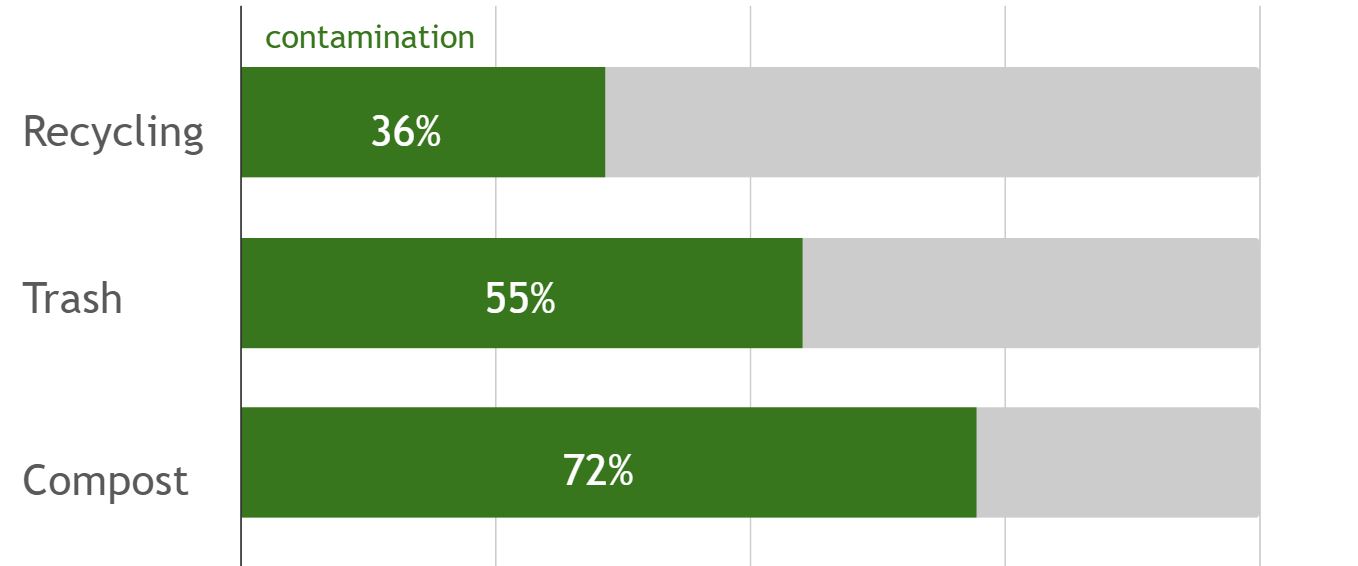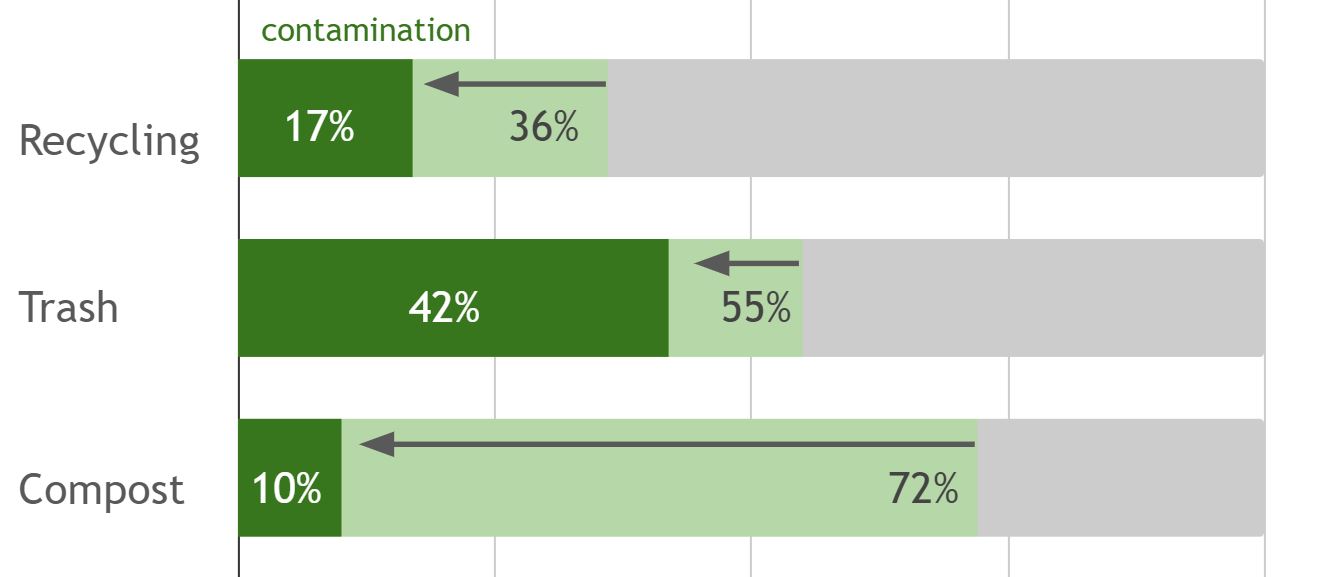No Waste Watchers

Waste audit data collection from a graduate chemistry seminar
The Problem - Waste Stream Contamination :o
MIT faces high levels of cross-contamination in waste streams (trash, recycling, and compost). Examples of waste stream contamination include plastic utensils in the compost, or non-recyclable coffee cups in the recycling. If recycling/compost streams have high contamination levels, they are thrown into the trash by MIT’s waste management provider, so the effort for pre-sorting the recycling/compost is wasted.
The Solution - Waste Watchers
Our sustainable solution is Waste Watchers: students are trained on the details of MIT’s waste disposal system (i.e. what items go where) and paid to staff shifts at campus events. Waste Watchers help individuals dispose of their waste in the correct stream. This has the potential to decrease campus-wide waste stream contamination levels while also serving as a resource to educate the MIT community about waste sorting.
Our Mission
Our mission is to make MIT a more sustainable campus. To do this, we aim to:
- Decrease waste stream contamination levels on campus
- Educate the MIT population on proper waste sorting practices
- Collect data to inform future product purchasing decisions
- Offer consulting services to event planners on how to make their events more sustainable
- Provide opportunities for MIT students to become environmental leaders and educators in their communities
- Raise awareness of waste production and contribute to a sustainable culture on campus
